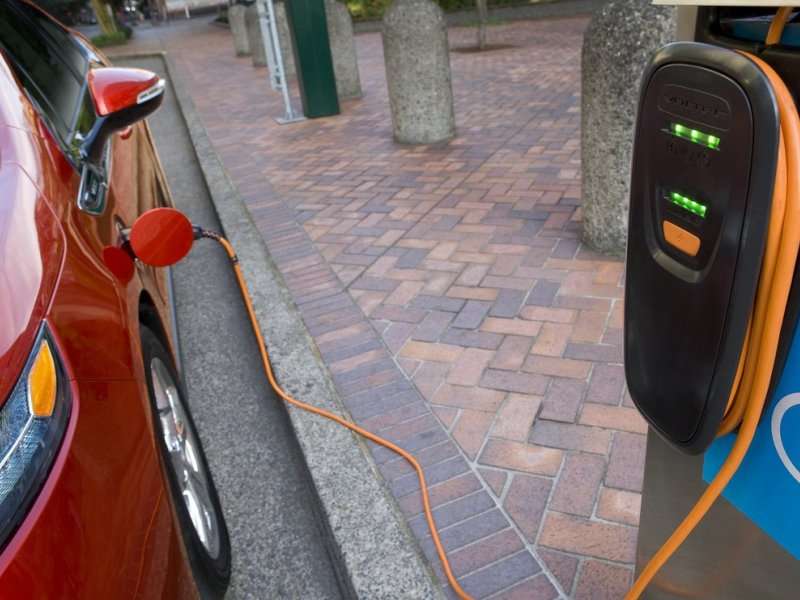Recent Articles
Popular Makes
Body Types
5 Disadvantages Of Hybrid Cars
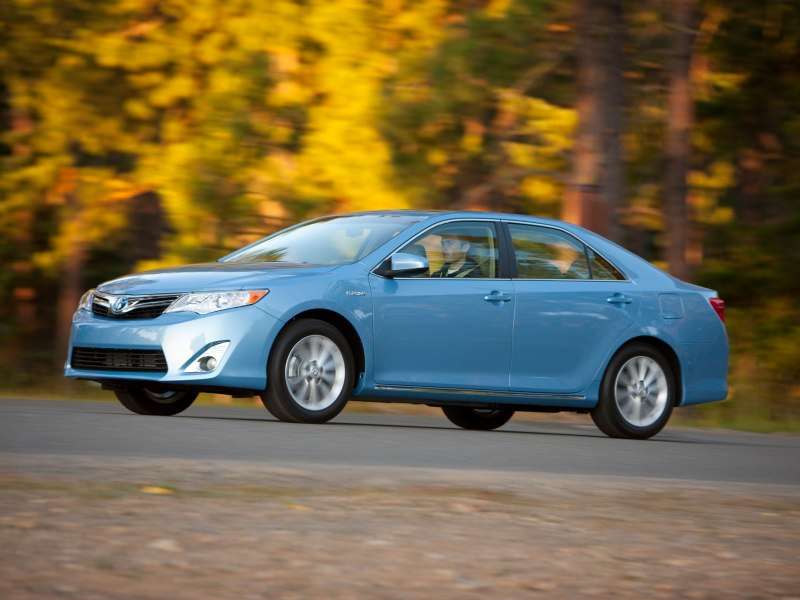
There is no question that hybrid cars are here to stay and that they have made significant in-roads past their initial niche as compact-only fuel savers. While there are definitely compelling reasons to buy a hybrid car, especially when considering the environmental impact of vehicle emissions as well as lower overall fuel consumption, there are also several disadvantages of hybrid cars that should be considered before making a purchase. No class of vehicle can be all things to all people, and just as some new car shoppers sacrifice fuel efficiency and practicality for power and performance, there are those who are willing to look past other negatives when picking up a hybrid vehicle.
Let's take a quick look at five disadvantages of hybrid cars.
Disadvantages of Hybrid Cars - 01 - Hybrid Cars Cost More
With very few exceptions - such as the 2013 Lincoln MKZ Hybrid - opting for the hybrid version of a car will cost you more money than the standard model. This is especially true when shopping for a luxury vehicle, where hybrid cars and hybrid SUVs are often marketed as eco-status symbols rather than vehicles that have been designed to return the best possible fuel economy. This has lead to the development of sedans and crossovers like the ActiveHybrid7 and the Lexus LS 600h L, each of which provide ample power but return fuel mileage that is merely passable.
Moving outside the premium car segment, the biggest issue with this concomitant price increase associated with hybrid cars has to do with the length of time it will take to make up the cost difference between a hybrid and its compact equivalent. Yes, a vehicle like the Toyota Prius delivers an exceptional 50-mpg combined, but when a Ford Focus can offer 31-mpg combined and cost $6,000 less, the number of years of regular driving - at current fuel prices - before that price gap is made up can become substantial.
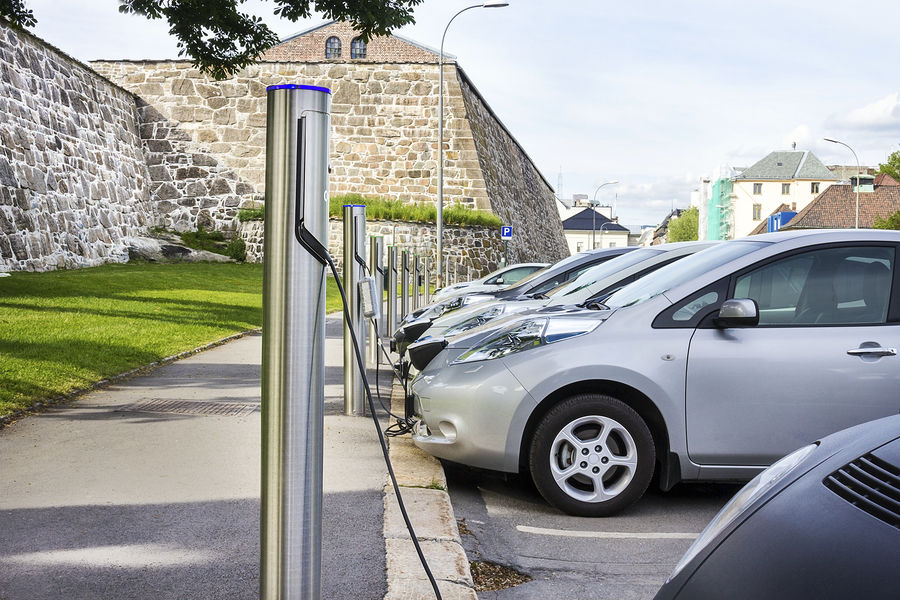
Disadvantages of Hybrid Cars - 02 - Hybrid Cars Are Heavier
For some buyers, having a high curb weight isn't a disadvantage for a hybrid car, but for anyone concerned with performance it can quickly become an issue. Gasoline / electric drivetrains usually tip the scales heavier than their gas-only counterparts, due to the fact that an electric motor, battery pack, regenerative braking system, and associated cooling systems are all part and parcel of the hybrid design.
Battery packs especially can add significant weight to an automobile, which is why they are mounted as low as possible in order to preserve the vehicle's center of gravity. Unfortunately the more performance a hybrid car offers, the larger its battery pack, which means that increasing output to deal with additional mass of takes a weight toll of its own.
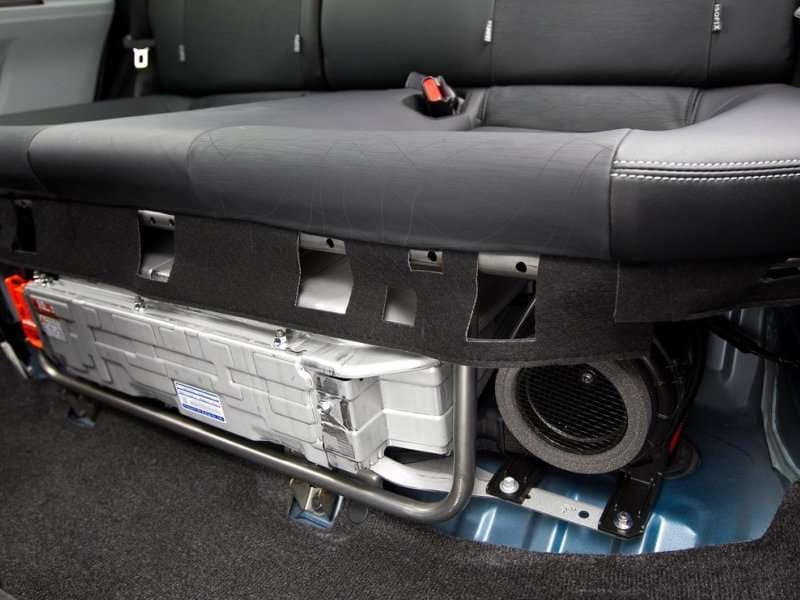
Disadvantages of Hybrid Cars - 03 - Battery Replacement Schedules Are Unknown
The panic about failing battery packs in hybrid cars is completely unwarranted, but there are some caveats associated with the lifespan of current energy storage systems in hybrid vehicles. The most reliable data available on the long-term effects of charging and discharging a hybrid battery pack has been drawn from the first-generation Toyota Prius, which has been on the market since the 1990s. The initial analysis is quite encouraging, with older Prius models providing nearly identical fuel mileage a decade or more after their construction.
That being said, the Toyota Prius is but one player on the hybrid stage, and automakers make use of a panoply of battery suppliers, charging systems, and software management systems. This doesn't mean that hybrid batteries are going to start dropping like flies after 100,000 miles of use - far from it, with many manufacturers providing extensive warranties that will last far past the initial ownership period of an automobile. However, that the industry's collective experience with hybrid battery reliability is limited, and it's difficult to project the future performance of various battery systems based solely on the information that has been gathered so far.
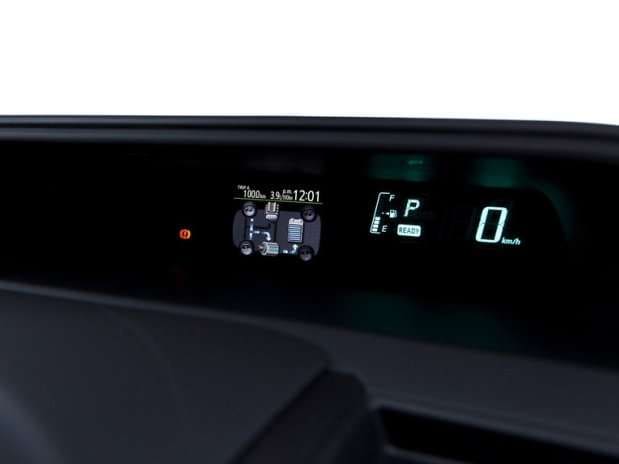
Disadvantages of Hybrid Cars - 04 - Hybrid Cars Aren't Winter-Ready
Cold weather is the ultimate enemy of current hybrid vehicle designs, for several reasons. First and foremost, batteries discharge more quickly in cold weather, which means that extended-range hybrids such as the Chevrolet Volt see their electric-only range drop precipitously along with the mercury in the thermometer. Second, in the winter time drivers demand more from their automobile's electric system, especially when it comes to heating, and this further taxes fuel mileage and overall efficiency. Anyone who has ever ridden in a hybrid car during the depths of a blizzard will be all too familiar with the difficult of the vehicle's climate control system to keep up with the comfort needs of passengers without significantly impacting range.
Finally, winter weather exacts a toll on all automobiles that make use of an internal combustion engine. Not only does it take longer for cars to heat up to optimal - and most efficient - operating temperatures when it is cold outside, but the slipping and sliding that occurs when wheels struggle to find traction sucks down fuel and battery power at an accelerated rate.

Disadvantages of Hybrid Cars - 05 - Plug-In Hybrid Car Infrastructure Still Isn't There
Plug-in hybrid electric vehicles (PHEVs) offer the best of both worlds: a hybrid battery system that can be recharged either by braking or the vehicle's engine, as well as the option of plugging into a wall charger and sucking juice straight from the grid. PHEV models are starting to appear in Chevrolet, Ford, and Toyota's lineups, and their dual-charging philosophy represents a clear upgrade for efficiency-conscious drivers.
The primary issue with PHEV models, however, is that it can be quite difficult to charge up with a plug when driving outside of a major urban area. While 110-volt connections can trickle electricity into the battery at a reduced rate, a 220-volt-or-better charging post is needed to make PHEV use truly practical on a regular basis. Unfortunately, most parts of the country are still waiting for the infrastructure necessary to accommodate the charging needs of plug-in buyers, which means that if you live outside of a big city you might want to wait for reality to catch up with PHEV technology before plunking down your hard-earned cash on one of these models.
